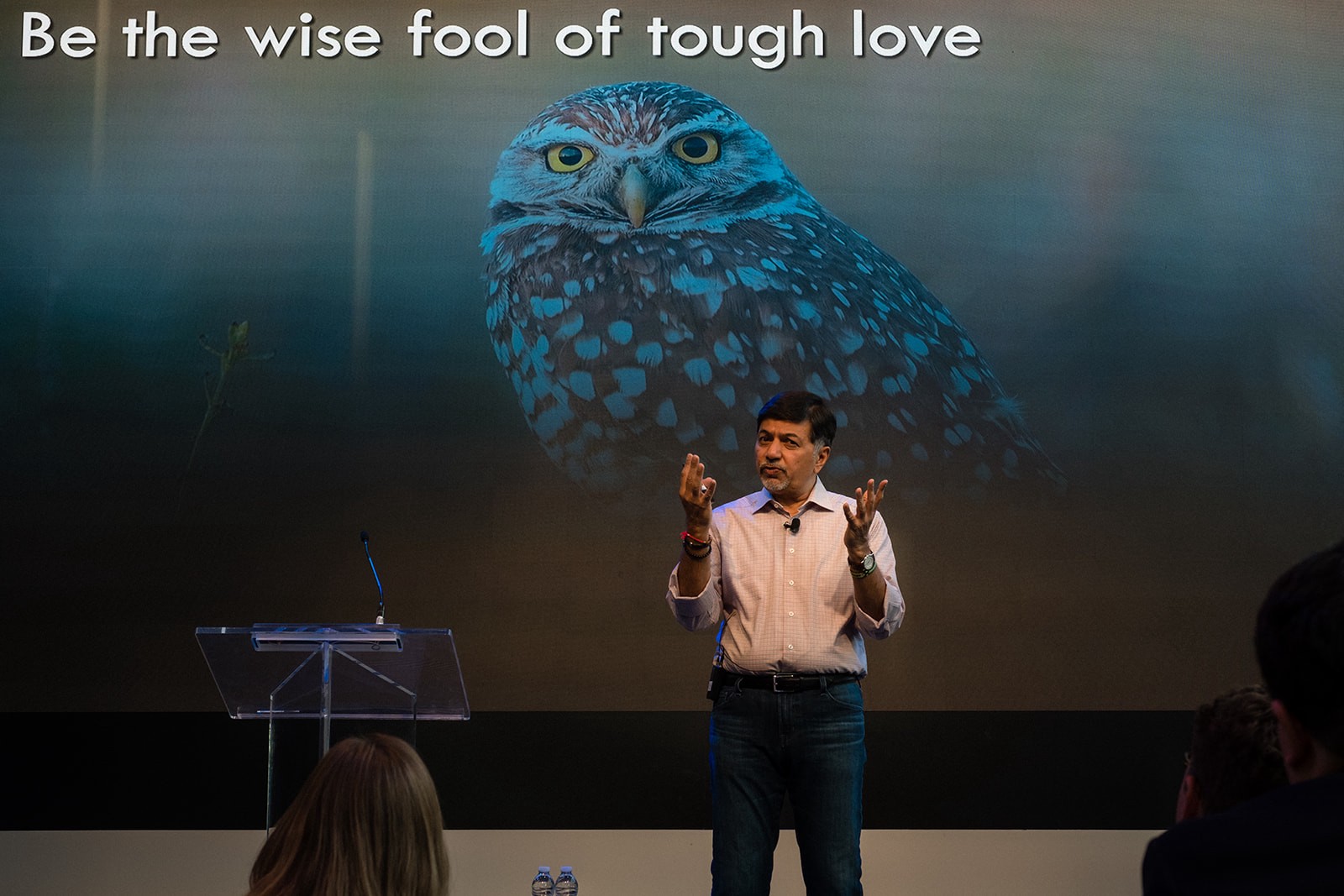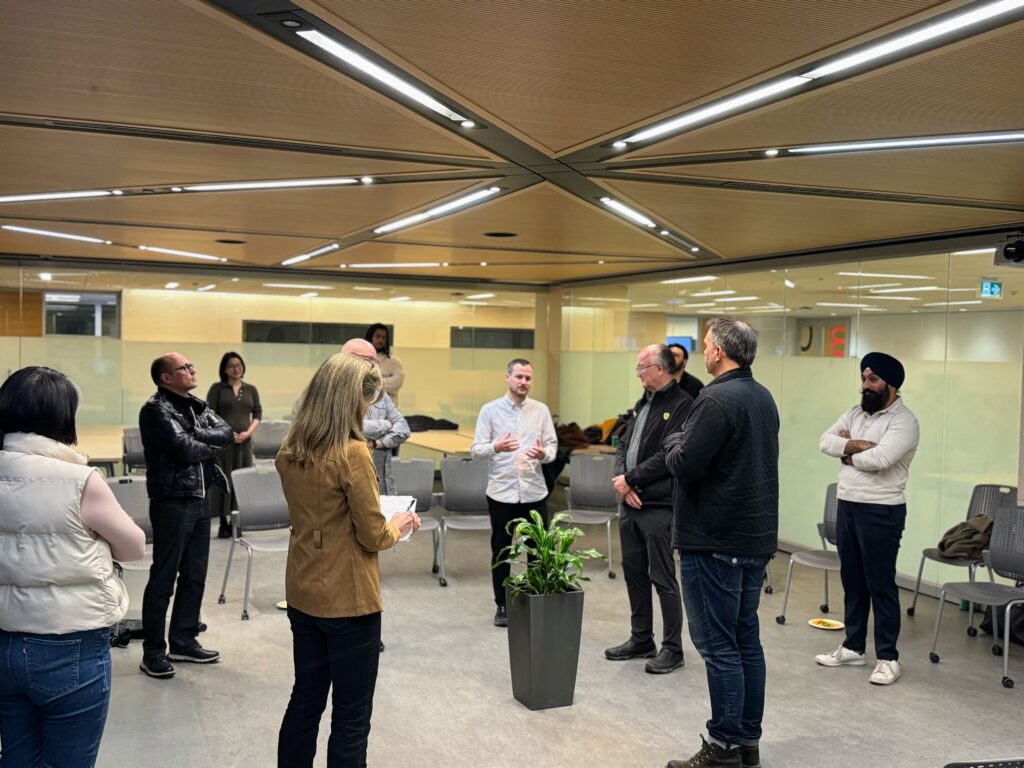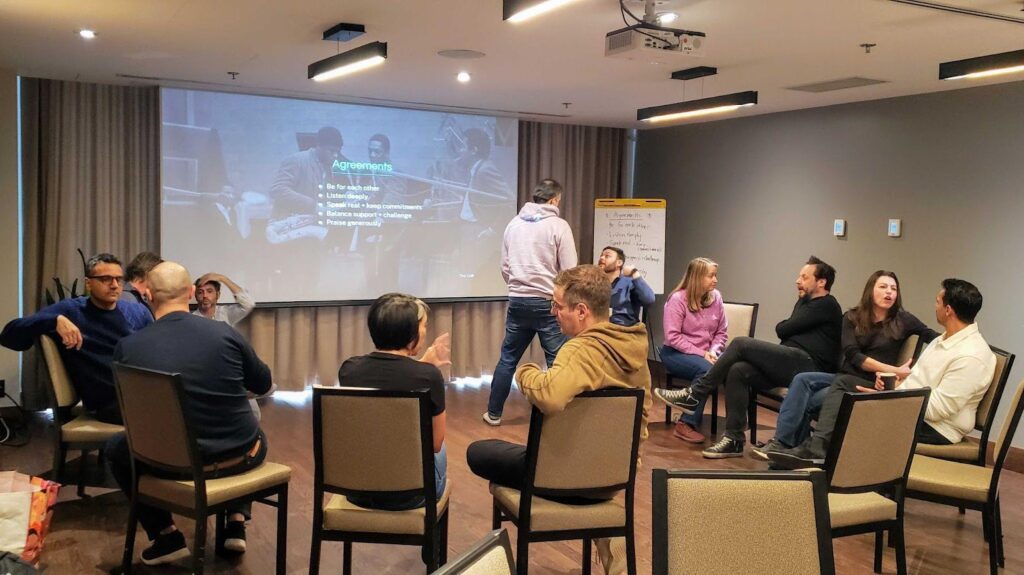We spend a lot of time thinking about technology’s relationship with society. More recently, we have dedicated time to reflecting on capitalism’s relationship with society — we are venture capitalists after all.

It is evident that various views on capitalism exist across the globe, and vary widely even within North American society, but rather than being fearful of discussing these different perspectives, we encourage debate and reflection.
While exploring these ideas, we have become exposed to some incredible people — thinkers whose research and knowledge shapes our thoughts and actions. This month, we at Real Ventures were fortunate enough to host one such person at our recent Annual Meeting. Raj Sisodia — Distinguished Professor of Global Business at Babson College, Whole Foods Market Research Scholar in Conscious Capitalism and co-founder and co-chairman of the Conscious Capitalism movement — has devoted over a decade to exploring the positive effects that a conscious approach to capitalism has on our world.
Through his research for close to a dozen books, he has uncovered a powerful truth and discovered his own purpose:
Many of the world’s most successful businesses are those that bring heart, healing and love to leadership.
Using Whole Foods as an example, he says:
“It’s like a mission with a business, not a business with a mission. They grow and become bigger so that they can achieve their purpose, which is to educate people that what you put into your body makes a difference to your health, the health of the food system, and the health of the planet. And there’s an urgency to that purpose even 30, 40 years after their founding.”
Raj believes that people should recognize the massive positive impact capitalism has had on humanity.
“We need to celebrate and elevate capitalism, not decimate it.”
“After millennia of suffering — of the majority of humans living in abject poverty — capitalism has created enough wealth to fund the creation of infrastructure, social safety nets, education systems and many of the institutions we now take for granted. It has also significantly lengthened our lifespans and helped bring meaning to the lives of millions.”
That being said, the large-scale adoption of what Raj terms the profit maximization fallacy has had wide-sweeping impacts on society. This approach to business — where the core indicator of success is deemed to be quarterly increases in profits — largely emerged in the 1970s with Milton Friedman’s assertion that:
“ … There is one and only one social responsibility of business — to use its resources and engage in activities designed to increase its profits so long as it stays within the rules of the game, which is to say, engages in open and free competition without deception or fraud.”
This single-minded focus on profit has, in fact, had the opposite effect from what was intended, Raj notes, with steadily diminishing returns on assets for firms in the United States since the view was first espoused.
The profit maximization approach ignores an obvious truth. As Herb Kelleher, founder of Southwest Airlines, states:
“The business of business is people — yesterday, today and forever.”
This should be self-evident.
Doctors become doctors because they want to heal others. Teachers teach because they wish to educate. Most entrepreneurs start companies because they want to solve big problems, but somehow, unlike other vocations, we don’t measure businesses on how well they help people but on how much money they earn for their shareholders.
So, can we reconsider this narrow approach to capitalism and embrace a version that has positive outcomes for all involved? Can we turn workplaces into environments where employees can leave at the end of the day mentally, physically, emotionally, spiritually better off than they came in?
How do we run businesses such that customers are loyal not because a company spends more on advertising than its competitors, but because they are drawn to their purpose?
Raj believes that by merging consciousness and capital through an evolved, mindful approach to building businesses, we can construct stronger, more successful companies that have net-positive effects on all stakeholders. Focusing on trust, authenticity, caring, empowerment, and above all, purpose, will not only solve the problems of millions of people around the world but potentially raise economic prosperity for all people.

As investors in technology-related businesses, we often look to history to understand the future, but we have also come to appreciate that the future may also look very different from the past.
In the same vein, the capitalism of the past 50 years, with its narrow focus on shareholder returns, may not be the capitalism that leaders and markets adopt in the future. Just last month, for example, the US Business Roundtable announced the redefinition of the purpose of the Corporation and included in it the need “to promote an economy that serves all stakeholders”.
Time will tell if this is another signpost towards a more wholesale adoption of this broader view of the purpose of the corporation (we believe it is) and whether the ideas underpinning conscious capitalism will be embraced within the venture capital ecosystem (we know we will).
**********
For more insights, fundraising advice, founder stories, ecosystem deep dives and industry trends, sign up for our newsletter and follow us on Twitter, LinkedIn and Facebook.




